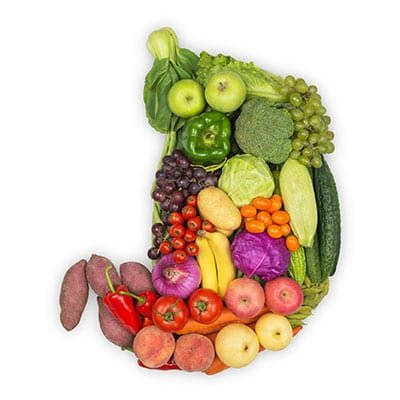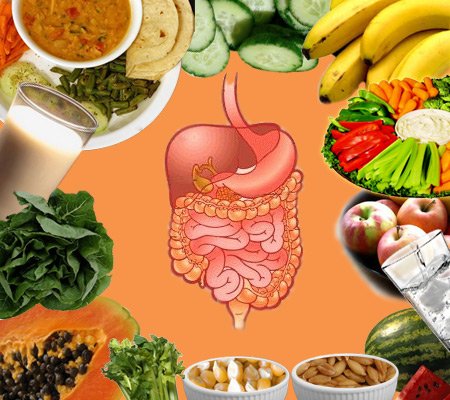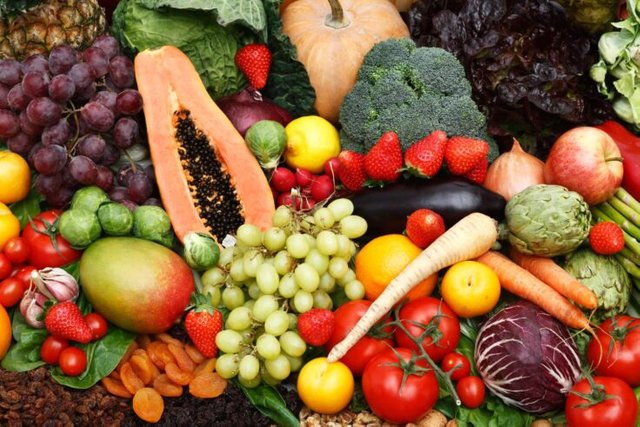Healthy Digestive Foods
the introduction

The human digestive system plays a vital role in breaking down the food we consume and extracting essential nutrients to support overall health. A balanced diet consisting of healthy foods can significantly contribute to the proper functioning of the digestive system. In this article, we'll explore ten points about healthy food choices that promote digestive health:
Fiber-rich Foods: Incorporate a variety of fiber-rich foods like fruits, vegetables, whole grains, legumes, and nuts into your diet. Fiber aids digestion by promoting regular bowel movements, preventing constipation, and maintaining a healthy gut environment for beneficial gut bacteria.
Probiotic Foods: Probiotics are beneficial live bacteria that support gut health. Foods like yogurt, kefir, sauerkraut, kimchi, and miso are excellent sources of probiotics. They can help balance the gut flora and improve digestive function.

Prebiotic Foods: Prebiotics are non-digestible fibers that promote the growth of beneficial gut bacteria. Foods like onions, garlic, leeks, bananas, and asparagus are rich in prebiotics and should be included in your diet.
Lean Protein Sources: Opt for lean protein sources such as poultry, fish, beans, lentils, and tofu. These proteins are easier to digest and can help prevent digestive discomfort compared to fatty or heavily processed meats.
Hydration is Key: Staying well-hydrated is essential for digestive health. Water helps soften stools, making them easier to pass, and supports the overall function of the digestive system. Aim for at least eight glasses of water per day.
Limit Highly Processed Foods: Processed foods are often low in fiber and high in unhealthy fats, sugar, and additives. These can disrupt the digestive process and may lead to gastrointestinal issues. Minimize their consumption and opt for whole, natural foods whenever possible.

Mindful Eating: Practicing mindful eating habits can aid digestion. Chew your food thoroughly to break it down into smaller particles, making it easier for your digestive system to process. Eating slowly also helps you recognize fullness cues, preventing overeating.
Avoid Trigger Foods: Identify and avoid foods that trigger digestive discomfort or intolerance. Common triggers include spicy foods, high-fat meals, artificial sweeteners, and specific food allergies.
Small, Frequent Meals: Instead of consuming large meals, try eating smaller, more frequent meals throughout the day. This approach can help prevent overloading the digestive system and regulate blood sugar levels.
Include Enzyme-rich Foods: Certain foods, like papaya, pineapple, and fermented vegetables, contain natural enzymes that aid digestion. Incorporating these foods into your diet can enhance the breakdown of nutrients and alleviate digestive issues.
In conclusion, a healthy diet that supports the human digestive system includes a variety of fiber-rich foods, probiotics, and prebiotics to promote a balanced gut environment. Lean proteins, hydration, and mindful eating habits also contribute to better digestive function. Minimize processed foods and avoid trigger foods to prevent digestive discomfort. By incorporating these principles into your eating habits, you can enhance your digestive health and overall well-being. As always, it's essential to consult with a healthcare professional or a registered dietitian before making significant changes to your diet, especially if you have specific digestive concerns.